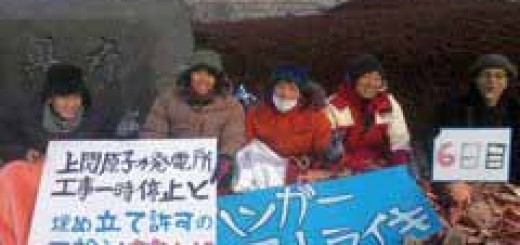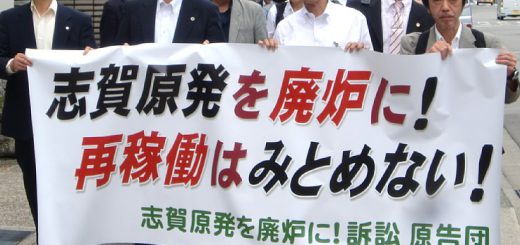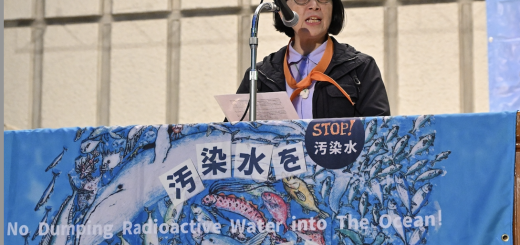Chugoku Electric’s Unbelievable Lack of Awareness of Safety and Quality Control Nuke Info Tokyo No. 136
Chugoku Electric is unqualified to operate nuclear power plants at all, let alone build a new one at Kaminoseki (see Group Introduction).
On March 30 Chugoku Electric Power Company announced that it had failed to carry out checks on a total of 123 pieces of equipment during past periodic inspections of Units 1 and 2 of its Shimane Nuclear Power Station, located in Matsue City, Shimane Prefecture. On April 30 it updated the number to 506 pieces of equipment. (It also revised the initially reported figure of 123 to 122. This is taken into account in the new total of 506.)
Unit 2 was undergoing a periodic inspection at the time. Unit 1 was shut down manually the day after the announcement. The checks found that the company failed to regularly inspect 347 items at Unit 1 and 159 items at Unit 2. In addition, the company found 1,159 other items that would not have been properly checked had its inspection program not been improved by the time the checking deadlines elapsed for these items.
The failure to carry out regular checks was only discovered when a replacement motor for Unit 1 arrived unexpectedly from the manufacturer. The motor, which drives a valve in the high-pressure feedwater injection system, was to have been replaced in 2006, but it continued to be used because an incorrect replacement order was issued. The situation was not reported to supervisors, who thought that the motor had been replaced. Only in June 2009, when a new motor arrived, did the supervisors realize what had happened. Nonetheless, they neglected to tell the inspections section until January 2010.
The fact that an incorrect replacement order was placed is bad enough. That alone shows the inadequacy of Chugoku Electric’s quality control system. However, that the old part could continue to be used without any safety assessment being carried out reveals a careless attitude to safety. This and the other missed checks are totally unacceptable and very likely to be breaches of safety rules.
After the cover-ups by Tokyo Electric Power Company revealed in 2002 (NIT 92) and other cases of data falsification and cover-ups revealed in 2006 (NIT 117), electric power companies were supposed to have carried out thorough investigations. Chugoku Electric checked its records and interviewed 4,000 of its own and contractor staff. In March 2007 it reported that it had discovered many cases of malpractice: 17 cases at its hydroelectric plants, 34 at thermal plants and 29 at nuclear plants. In particular, it reported that water level data and water intake data had been forged for many years at its Doyo Dam. After the Minister for Economy, Trade and Industry issued instructions that should have been the end of such problems.
The recently discovered failures to carry out checks had been going on for many years. Yet they were not uncovered in Chugoku Electric’s 2006 investigations. Inspection plans are very detailed, specifying which equipment will be checked and when, by which company. They are fitted into the overall schedule, so if checks are not carried out as specified this should be noticed at the time. Even if checks are missed, this should be discovered when records are cross-checked.
The safety rules established by the operator are covered by the license. However, the regulatory authority, the Nuclear and Industrial Safety Agency (NISA), only assesses the system (inspection procedures, implementation procedures, record-keeping system, etc.), not the details. The Japan Nuclear Energy Safety Organization (JNES) checks the operator’s inspections, but it seems that JNES’s checks also mostly focus on the system. It is assumed that the operator will faithfully follow its own procedures. Regulatory bodies act on the assumption that the operator is basically honest and competent, but the current case shows that the operator’s inspection system was not functioning properly. It is essential to find the underlying cause of this situation.
NISA has inspected the Shimane plant and has urged other power firms to find out if regular checks are being carried out appropriately at their power plants. Chugoku Electric said that it will continue inspections and file a final report in early June at the earliest.
However, people have lost trust in electric power companies as a result of repeated scandals and their inability to reform themselves. It is no surprise then when people conclude that such companies should not be allowed to operate their existing nuclear power plants, let alone build new ones.
Hideyuki Ban (CNIC Co-Director)



